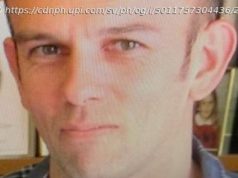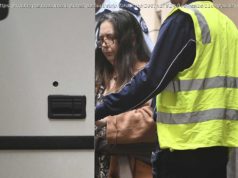The guilty plea of a 30-year-old campaign aide shifted the narrative Monday of the Trump campaign’s interactions with Russia: Court documents revealed that…
WASHINGTON — The guilty plea of a 30-year-old campaign aide — so green that he listed Model United Nations in his qualifications — shifted the narrative Monday of the Trump campaign’s interactions with Russia: Court documents revealed that Russian officials alerted the campaign, through an intermediary in April 2016, that they possessed thousands of Democratic emails and other “dirt” on Hillary Clinton.
That was two months before the Russian hacking of the Democratic National Committee was publicly revealed and the stolen emails began to appear online. The new court filings provided the first clear evidence that Trump campaign aides had early knowledge that Russia had stolen confidential documents on Clinton and the committee, a tempting trove in a close presidential contest.
By the time of a crucial meeting in June of last year, when Donald Trump Jr. and other senior Trump campaign officials met with a Russian lawyer offering damaging information on Clinton, some may have known for weeks that Russia had material likely obtained by illegal hacking, the new documents suggested. The disclosures added to the evidence pointing to attempts at collaboration between the Trump campaign and the Russian government, but they appeared to fall short of proof that they conspired in the hacking or other illegal acts.
The improbable figure at the center of the new information was a “foreign policy adviser” to Trump, George Papadopoulos. It was Papadopoulos, one of three men whose charges were announced Monday, who appears to have been the first campaign aide to learn about the Russian hacking of Democratic targets.
A crucial detail is still missing: Whether and when Papadopoulos told senior Trump campaign officials about Russia’s possession of hacked emails. And it appears that the young aide’s quest for a deeper connection with Russian officials, while he aggressively pursued it, led nowhere.
Papadopoulos repeatedly promoted the idea of a “history making” meeting between Trump and Vladimir Putin, the Russian president. Senior campaign officials, however, said that Trump should not make the trip and leave it to someone “low level in the campaign so as not to send any signal,” according to an email cited in court documents.
Papadopoulos then proposed that he himself, perhaps with another campaign official, travel to Moscow to meet with the Russians.
“The trip proposed by defendant PAPADOPOULOS did not take place,” prosecutors wrote.
To grasp the significance of Monday’s developments, it helps to recall exactly how the Russian attack unfolded.
In September 2015, the FBI made its first call to the Democratic National Committee to report evidence of Russian hackers inside the committee’s network. But for seven months, the word never got beyond an IT contractor, and the hackers apparently had the run of confidential emails and other files.
During that time, Trump was pressed to assemble a team of foreign policy advisers, a difficult task because he was shunned by many Republicans who had served in earlier administrations. In early March, Papadopoulos, who had been helping the beleaguered campaign of Dr. Ben Carson, offered his services to the Trump campaign.
Around March 6, documents say, a campaign supervisor — identified by a former Trump adviser as Sam Clovis — told Papadopoulos, then living in London, that “a principal foreign policy focus of the campaign was an improved relationship with Russia.”
A week later, traveling in Italy, Papadopoulos encountered a London-based professor of international relations, Joseph Mifsud, who claimed to have “substantial connections with Russian government officials.” (The court documents do not name Mifsud, but a Senate aide briefed on the case identified him as the professor in question.)
Unimpressed by Papadopoulos at first, Mifsud became far more interested when he learned that the young traveler was working for the Trump campaign. The two men met again in London on March 24, when the professor introduced Papadopoulos to a Russian woman he said was a relative of Putin with close ties to senior Russian officials.
On March 31, back in Washington, Papadopoulos met Trump for the first time at a gathering of his new foreign policy team at the candidate’s Washington hotel. According to the former Trump adviser who was there, and who spoke on condition of anonymity to avoid offending former colleagues, Papadopoulos spoke for a few minutes about his Russian contacts and the prospects for a meeting with the Russian president.
But several people in the room began to raise questions about the wisdom of a meeting with Putin, noting that Russia was under sanctions from the United States. Jeff Sessions, now attorney general and then a senator from Alabama who was counseling Trump on national security, “shut George down,” the adviser said. “He said, ‘We’re not going to do it’ and he added, ‘I’d prefer that nobody speak about this again.’”
But Papadopoulos was not deterred, the documents say, and he continued to communicate with Mifsud and the Russian woman about more contacts. The Russian woman wrote on April 11, “we are all very excited by the possibility of a good relationship with Mr. Trump.” Mifsud introduced Papadopoulos over email to a Moscow contact who said he had connections to the Russian foreign ministry. They spoke repeatedly over Skype about a possible Moscow trip, the documents say.
On April 26 came a crucial meeting. At breakfast at a London hotel, Mifsud told Papadopoulos that he had just returned from Moscow, where he had “learned that the Russians had obtained ‘dirt’ on then-candidate Clinton.” Mifsud said he had been told the Russians had “thousands of emails.”
On May 4, the Russian contact with ties to the foreign ministry wrote to Papadopoulos and Mifsud, saying ministry officials were “open for cooperation.” Papadopoulos forwarded the message to a senior campaign official, asking whether the contacts were “something we want to move forward with.”
The court documents describe in detail how Papadopoulos continued to report to senior campaign officials on his efforts to arrange meetings with Russian officials, which The Washington Post reported on in August. But the documents do not say explicitly whether, and to whom, he passed on his most explosive discovery — that the Russians had what they considered compromising emails on Trump’s opponent.
J. D. Gordon, a former Pentagon official who worked for the Trump campaign as a national security adviser and helped arrange the March 31 foreign policy meeting, said he had known nothing about Papadopoulos’ discovery that Russia had obtained Democratic emails or of his prolonged pursuit of meetings with Russians.






